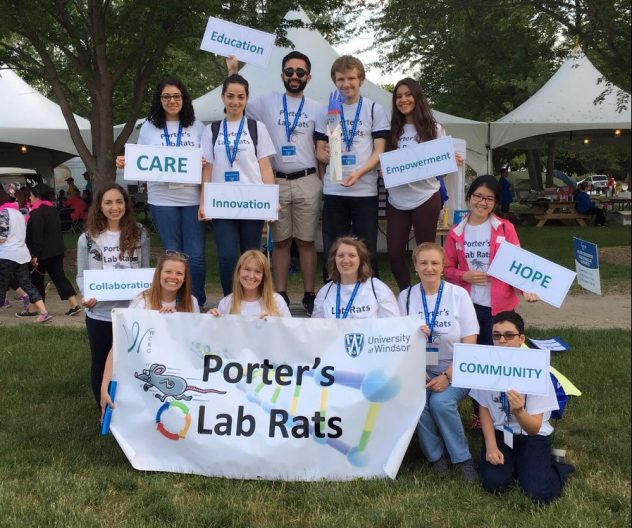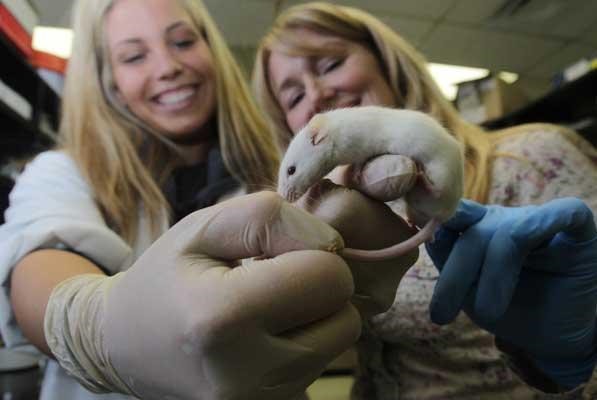
Why Research?
The world is constantly changing, evolving and facing new obstacles; climate change, political and social adversity, barriers of equality, poverty, disease, changing population demographics – the list goes on. To the outside world, the workings of Universities are largely unknown. Higher education itself is often viewed as a machine to pump students with information from textbooks – miraculously spitting out doctors, lawyers, leaders, inventors, activists. A professor is a glorified teacher given time to sit and contemplate the problems of the world, an absurd idea.
Within the University system there isn’t much more clarity. Top administrators and leaders in Universities often view the system as a business, bringing in dollars for ‘bums in seats’. For most professors lecturing ‘textbook material’ comprises as little of our time as possible and is not what we value ourselves for; despite this being almost entirely what we are considered to contribute to society. In reality, a successful University doesn’t just train students to perform a specific ‘job’ – Universities encourage independent thought, creativity and innovation. They ‘teach’ grit, determination, ambition, leadership. Universities accomplish this through professors that conduct research and its principles, but how research contributes to these high level outcomes is largely not appreciated.
‘Research’ is an amorphous term that in an abstract way embodies what it should achieve; constant thought, re-evaluation and discussion. Research refers to tackling any unknown by leveraging existing knowledge, methods and analysis. Research objectives and principles, from a scientific perspective, should be simple and organized; but discipline-specific culture, history and politics blurs the path – often so much that even the most level headed can get lost in the fog. It is little wonder why the outside world has a hard time understanding what it is that professors do and why research is important.
Why is research important?
I’ll use my own lab as an example. Our lab studies how cells grow and divide, and how this changes through development and in disease states like cancer. We use complicated techniques that take years to properly train; including making viruses and using novel methods to alter the DNA of a cell, growing human cells in new ways that mimic what they do in the human body and using animal models to dissect what causes diseases in humans and new potential therapies. Research today, just as everything in Science, is more demanding than it was even a decade ago. Students have thousands of papers at their fingertips, and mountains of data readily available and constantly growing, and they are expected to absorb them all and come up with the next logical step for a field that they are just learning about. Students have to learn the latest most cutting edge technologies, and some of the most pressing questions may require that you advance this technology yourself. Students, like professors, are faced with a system that doesn’t discuss, or seem to understand, the value of research – yet they sign up. They come into a lab like mine and become completely immersed. WHY – because they love to figure out why cells do what they do. They want to understand diseases like cancer. They want to understand why and how we develop. They are curious, hardworking, intelligent and driven – and we are providing an environment where they can let this all loose. Simple.

What happens after that is where the magic lies. Students come into my lab and fail, sometimes miserably. I take the brightest, fastest-thinking individuals, put them on the steepest learning curve imaginable and tell them that to get one small answer they have to set up numerous tedious, repetitive experiments and then repeat this cycle multiple times. After each experiment they have to scrub their own dishes, ensure everything is back in the proper spot and ordering complete – oh and don’t forget to put your garbage in the correctly labeled bins. Inevitably experiments fail and fail again until the students troubleshoot a solution. Some students feel overwhelmed, exhausted, disillusioned, some pissed off. Research associates and I struggle to deal with these students; each with their own individual personalities and problems – we train and provide a framework, hold some hands, let some go under water – but amazingly, together, some students swim – some beautifully. Bright minds come up with new ideas that excite us as a group – and slowly we begin to get answers to our questions.
Some answers will lead to new therapies for cancer, some will make sense of problems occurring during development, and others will go into textbooks to be taught in the classroom to our students so they can make the next steps forward. Each question that we are actively tackling is hope for patients dealing with devastating diseases. Each tedious step forward makes a bit more sense of our world.
Beyond the puzzles that we put together, and the knowledge that we contribute, are the people that it took to get there – thinking, repeating, working, struggling and digging deep. Learning isn’t just about absorbing the theory behind what we do – it’s figuring out ‘why’ you are doing it and ‘how’ to get to the next step. Some cannot handle that answers come slowly, that the path is not clear and destination undefined; others thrive on it. But one thing is certain – research ‘teaches’ what no textbook can – it teaches tenacity, grit, determination and all while encouraging creativity and inspiring teamwork and leadership.
Lisa Porter
***************************
I’m very proud of the number of ‘swimmers’ that have emerged from the Porter lab. I am lucky enough to have 4 bright, motivated and dedicated group leaders who help push and define who we are as a group. My lab provides me with a constant source of energy, ideas and inspiration.
In this blog I’m challenging everyone in my group to provide a short blurb about one of their research questions or papers – and to follow it with one lesson that they have learned along the way.
Thanks for reading and your interest! Feel free to leave comments, questions, suggestions!
